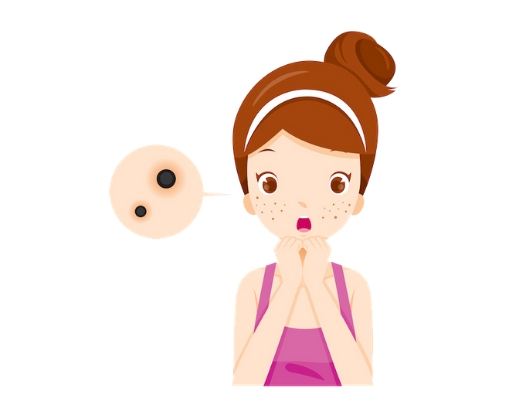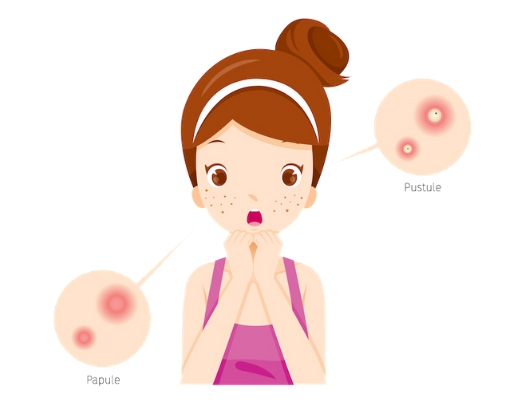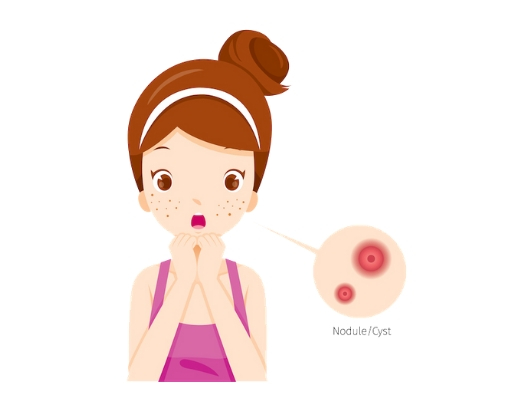Breakouts can be the bane of our skincare existence. But to treat them correctly, you have to first know what they are. Here, a primer on the different types of breakouts and what you can do to deal with them.
Breakouts. Sigh. For a lot of us who aren’t genetically blessed (like my sister, who’s never had a pimple in her life, true story), they are an inevitable aspect of our lives. For me, I’m prone to hormonal acne and the occasional cyst. But what’s the difference? What are the different types of breakouts you can have? And how can you treat them? Never fear, for your unni Sheryll is here!
What is a breakout & what are the different types?
First things first, a breakout is when your skin gets irritated due to a multitude of things — clogged pores, hormones, dirt, debris, incompatible products, stress, excess sugar or dairy … I mean, it’s a whole host of things. But knowing exactly what kind of breakout you have is the first step in getting rid of it properly. There are four main types of breakouts that I’m going to talk about today:
1. Comedones
2. Whiteheads
3. Blackheads
4. Inflammatory Acne
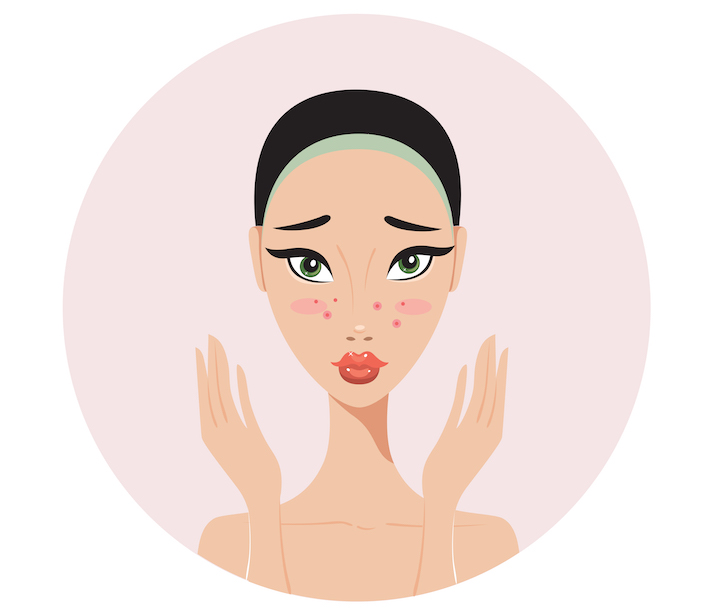
Comedones
Simply put, comedones (or a comedo, in the singular) is a hair follicle that’s become clogged with dirt, oil, and bacteria. It is the most basic form of acne and can be found on your face, chest, and back. A closed comedo is flesh-toned and can turn into either a whitehead or a blackhead if not treated.
The cause
Products that are comedogenic (aka pore-clogging) can cause comedones to form. For me, this is coconut oil, which triggered a massive breakout that took me months to recover from.
The tools
Make sure to use products that are non-comedogenic aka, non-pore clogging. If you’re a makeup wearer, make sure to look specifically for products that are oil-free. I’m sure that this is common sense, but washing your face two times a day with a gentle pH-friendly cleanser is also another major key to avoiding pesky comedones.
Whiteheads
A whitehead is a comedo that stays closed on the surface. It has a small white top, which is why it’s caused a whitehead.
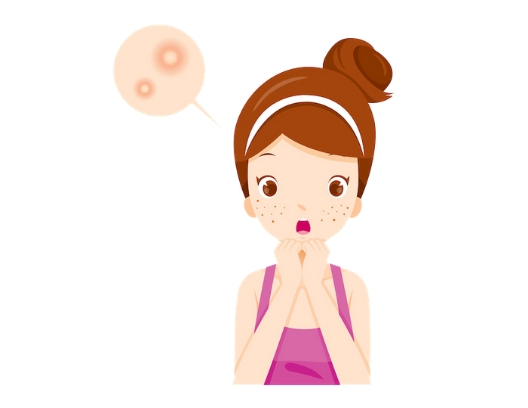
The cause
When the skin above a comedo is covered in dead skin cells and oil and dirt, it forms a plug above the comedo. All of that gunk gets trapped, and BOOM ... a whitehead forms. So it’s in your best interest to free those comedones as soon as possible so the dirt and oil can “escape.” The life cycle of a whitehead is about five days to a week.
The tools
An AHA is going to be your best defense against a whitehead. AHAs work on the surface of the skin, basically “untrapping” that closed comedo and freeing it. For a 1-2 punch, add in a BHA to unglue all of that debris under the surface. Glycolic, lactic, and mandelic acid are all different types of AHAs you can incorporate into your routine.
Blackheads
Blackheads are the somewhat opposite of whiteheads. Instead of being covered in a layer of dead skin, blackheads are open at the surface. They are basically the comedo that’s kinda getting pushed to the surface. Contrary to popular belief, blackheads aren’t dirt. Actually, since the pore is open, it is exposed to the air and oxidizes, making it that dark color. It’s kinda like what happens when you buy a bad foundation.
The cause
Like whiteheads, blackheads are caused by clogged hair follicles, aka comedones.
The tools
BHAs are your best weapon against blackheads. BHAs work deep in the pores to unglue all of that dead skin and oil. The COSRX BHA Liquid is one of the BEST products for blackheads, hands down.
Inflammatory Acne
Inflammatory acne is when a whitehead, blackhead, or comedo becomes infected. There are multiple types of inflammatory acne, including:
1. Papules
Comedones that have become extremely inflamed and infected. They are small, red, raised, and can sometimes appear in clusters.
2. Pustules
Comedones that again, have become infected, but this time, appear with white or yellow pus in the middle. They look like whiteheads, but are often red around the perimeter and tender to touch.
3. Nodules
Large, very inflamed, hard-to-the-touch bumps that appear underneath the skin. They are formed from bacteria, oil, and dead skin cells deep within the skin, making them much harder to treat. They often appear in people who have severe acne.
4. Cysts
The hardest type of inflammatory acne to treat. Cysts are extremely large, pus-filled bump that never comes to a head above the skin. They are formed extremely deep in the skin and are usually very painful to touch.
The tools
For papules and pustules, your best line of defense is staying away from comedogenic products and using an AHA or BHA treatment regularly if you know that your skin is acne-prone. You want to try to stop the whiteheads and blackheads from getting infected, but sometimes this is unavoidable, especially with hormonal acne. Whatever you do, DO NOT POP YOUR PUSTULES. I know it’s tempting, but if you don’t pop it correctly, you can actually cause the pustules to become even more infected, which causes it to spread. Just wait it out. It’s not worth it!
Nodules and cystic acne are very severe forms of inflammatory acne that are not treated by any over-the-counter treatment and should be looked at by a dermatologist who can provide a prescription for you.
Do you suffer from breakouts, and if so, what kind do you usually get? How do you treat your breakouts? Share your tips in the comments below.
Loading...
